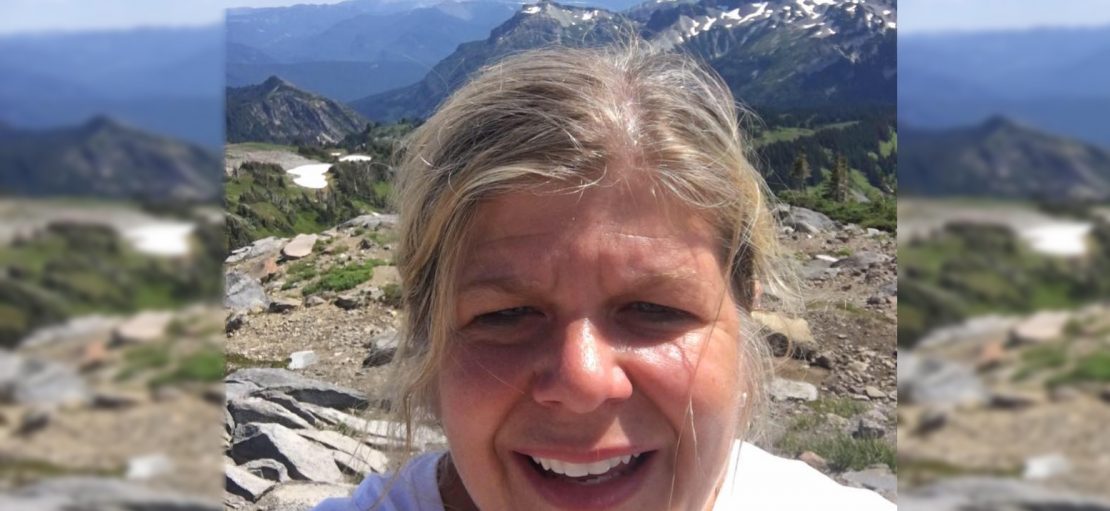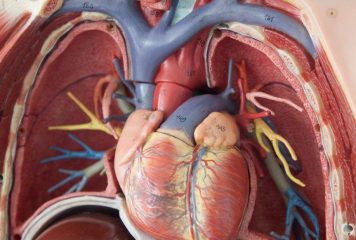Joy and Uncertainty: The Privilege of Being a Physician
September 7, 2018 | Posted by Carolyn C. Houk, MD, MBA, FACP | Assessments for MOC, Celebrating Physicians, MOC, Physician Feedback, Physician Feedback in Action: Online Tools
Carolyn C. Houk, MD, MBA, FACP is Attending Physician and Clinical Instructor, Physician Lead for Service at University of Washington Neighborhood Clinics.
When did you know that you wanted to be a doctor and why?
Throughout my whole childhood, I thought I wanted to be a nurse. I applied to nursing school for college and I happened to be interviewed by a female doctor during that process. We spoke for about 3 hours (I think it was only supposed to be an hour interview). That conversation changed my life because it made me I realize that I actually wanted to be a doctor. Being the first woman in my family to go to college, I never imagined going further with my education to earn a medical degree. I regret that I never went back to thank the female doctor for changing the course of my life, but I am forever grateful for her influence on me.
What did it feel like the first time you passed your boards?
I was elated. I had just finished a year as chief medical resident, I had done well in medical school and passed my USMLE exams, but there is always a fear that you could fail the boards.
How does it feel to have passed your third Maintenance of Certification (MOC) exam?
Again, I feel elation and relief. I am not sure the fear of failing ever goes away. I suppose it is a healthy fear that keeps me reading and up to date with the current literature and practice. There is also an expectation to pass the boards at my institution both for my clinical practice and my teaching responsibilities, so I am glad to be given my stamp of approval again.
What was it like to be among the first physicians to use the open-book feature on an ABIM exam?
Although the change introduced an element of uncertainty into the process, I enjoyed using the open book feature because it felt similar to what I do in everyday practice. I would like to think I have all the medical knowledge in my brain, but the knowledge of today is ever expanding. Even though I try to keep current, there really is no way that I can know it all without referencing resources like UpToDate®.
Do you feel that there are benefits to studying for and passing an MOC exam?
I do feel there are benefits for studying and passing an MOC exam, but I also believe that there may be alternate ways to test our current knowledge especially for older physicians who may not feel comfortable sitting or staring at a computer for extended periods of time.
What has been the proudest moment of your career thus far?
There are so many, and really it isn’t pride but the honor and privilege that people allow me to be a part of some of the most difficult moments of their lives. That is very humbling. One memory that stands out is when a primary care patient of mine went to the ER, had a CT scan, and was told he had cancer and to get his affairs in order immediately because he only had a month to live. He showed up the next morning in my office unannounced, CT scan in hand. I still remember the picture in my mind when I opened the door and saw him and his wife sitting there holding hands in the waiting room with their heads down crying. He lived several years longer than his prognosis, was able to travel, spend time with his family and have quality of life in his remaining time. He told me the thing that kept him alive was the hope that I gave him moving forward.
Is there anything else that you would like ABIM or your colleagues in the internal medicine community to know?
Find joy in all things we do in medicine and never forget what brought you to medicine. You have a talent that was given to you to share with others and that is a true blessing and vocation.



